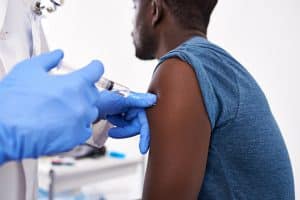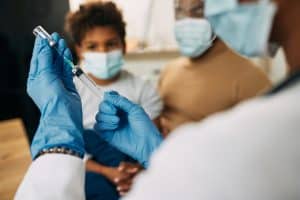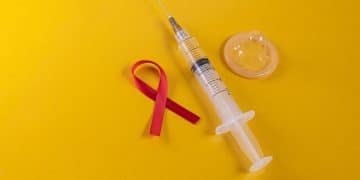Afrigen’s mRNA vaccine research 2025


A new chapter in vaccine innovation is unfolding, and it’s being written in Cape Town. At the heart of this story is the mRNA vaccine, a cutting-edge tool reshaping how we fight infectious diseases.
Afrigen Biologics is leading the charge, not just in science, but in independence, transforming South Africa’s place in global health through groundbreaking research.
This isn’t just about technology. It’s about sovereignty, speed, and saving lives.
Inside Afrigen’s mRNA Vaccine Technology: Innovation Born in Africa
To fully understand the impact of Afrigen’s breakthrough, it’s essential to explore the core of its mRNA vaccine technology.
Unlike traditional vaccines that rely on weakened or inactivated viruses, Afrigen’s approach uses synthetic messenger RNA to provide cells with the instructions to produce a harmless viral protein.
This protein triggers the immune system to recognize and prepare to combat the real virus if encountered later.
The Science Behind Afrigen’s Breakthrough
At the heart of Afrigen’s platform lies a refined, multi-step process that begins with sequence design using the genetic code of the targeted virus, in this case, Rift Valley fever.
The synthesized mRNA is encapsulated in lipid nanoparticles, which serve as protective vehicles to deliver the fragile mRNA safely into human cells.
Once delivered, the mRNA instructs the cells to produce a viral antigen, effectively training the immune system without exposing the body to the actual virus.
What sets Afrigen’s process apart is its commitment to open-source knowledge sharing and independent R&D.
Instead of licensing commercial formulas, Afrigen has developed this mRNA technology using publicly available sequences and protocols.
Giving low-and middle-income countries (LMICs) access to cutting-edge biotechnological tools without dependency on pharmaceutical patents.
Why This Matters Now More Than Ever
- Rapid Development Capability: Afrigen’s vaccine for Rift Valley fever reached the preclinical stage within 12 months—an extraordinary timeframe that illustrates the agility of mRNA vaccine platforms.
- Regional Relevance: Unlike many vaccines developed with a global market in mind, Afrigen’s work focuses on diseases that disproportionately affect Africa, addressing long-standing health inequities.
- Scientific Independence: By developing vaccines without reliance on foreign IP or supply chains, Afrigen is setting a precedent for African self-sufficiency in vaccine innovation.
Current Progress and Strategic Vision
Afrigen’s leading candidate, an mRNA vaccine for Rift Valley fever—has entered the preclinical evaluation phase with promising immunogenicity data from animal studies.
This represents a milestone: the first human-use mRNA vaccine designed, developed, and produced entirely in Africa.
The initiative not only aims to protect livestock workers and rural populations from a neglected tropical disease, but also provides a blueprint for future African-led vaccine development.
The project is supported by global partners who provide technical, regulatory, and funding support.
However, Afrigen’s operational model is distinctly African, rooted in local capacity building, workforce training, and sustainable biomanufacturing infrastructure.
In short, Afrigen’s mRNA vaccine technology is not just a scientific achievement, it’s a redefinition of what is possible when innovation meets inclusion.
This is more than a platform for one disease; it is a launchpad for transforming the health security of an entire continent.
Significance for local vaccine production
Producing vaccines locally is not just a matter of convenience. In countries like South Africa, it represents a critical step toward building healthcare resilience, reducing dependency on global supply chains, and responding rapidly to regional health emergencies.
Afrigen’s advancement in mRNA vaccine technology offers a foundation for transforming national and continental approaches to public health.
Benefits of Local Vaccine Production
One major benefit is the reduction of dependency on foreign suppliers. When vaccines are produced within the country, the supply chain becomes more reliable.
Local production also allows for the customization of vaccines to meet the specific needs of South African populations. Additionally, it fosters job creation and boosts the economy.
- Enhanced Accessibility: Vaccines can be distributed more rapidly to communities in need.
- Cost Efficiency: Lower transportation and import costs can lead to more affordable vaccines.
- Capacity Building: Establishing local facilities can improve expertise and technological skills.
With Afrigen’s mRNA vaccine research, the focus on local production plays a crucial role in improving public health. It minimizes the risk of shortages that often occur during global health crises.
When vaccines are produced closer to home, it builds trust within the community as people can see the commitment to their welfare.
Empowering the Healthcare System
Furthermore, local production empowers the healthcare system. It allows for more tailored approaches to vaccination campaigns, incorporating local health needs and preferences.
By engaging communities in the vaccine development process, there’s an increase in awareness and support, leading to higher vaccination rates.
In essence, the emphasis on local vaccine production not only addresses immediate health concerns but also strengthens the overall health infrastructure of South Africa.
The potential for improved health outcomes is significant, paving the way for a healthier future.
How mRNA vaccines work: A deep dive

To fully grasp the innovation behind Afrigen’s research, it is essential to understand how the mRNA vaccine functions at a cellular level.
Unlike traditional vaccines that introduce weakened or inactivated pathogens, this new approach uses genetic information to stimulate a protective immune response without ever using the actual virus.
The Biological Process Behind mRNA Vaccine Function
Messenger RNA, or mRNA, is a strand of genetic code that serves as a template for protein production in human cells. In the context of a vaccine, scientists synthesize a harmless version of the virus’s genetic sequence that codes for a specific protein.
This protein, often a spike found on the surface of a virus, is the key that triggers the immune system.
Step-by-step breakdown
1. Encapsulation and delivery
The synthetic mRNA is enclosed in lipid nanoparticles. These tiny fat-based carriers protect the fragile mRNA and help it pass through cell membranes upon injection.
2. Cellular translation
Once the mRNA reaches the cell’s cytoplasm, the cell’s machinery reads the instructions and begins producing the viral protein. This protein is harmless on its own and cannot cause infection.
3. Immune activation
The presence of this foreign protein alerts the immune system. In response, the body generates antibodies and activates T-cells to destroy any cells displaying the viral protein.
These defenses are also stored in immune memory for rapid recognition if future exposure occurs.
Key Benefits That Distinguish mRNA Technology
One of the most notable advantages of the mRNA vaccine platform is speed. While traditional vaccines can take several years to develop, mRNA-based vaccines can be designed and produced in a matter of months.
This speed was a critical factor during the global COVID-19 response and is now central to Afrigen’s efforts in combating Rift Valley fever.
In addition to being fast, this platform is also highly adaptable. As viruses evolve and new variants emerge, researchers can update the mRNA sequence without having to redesign the entire vaccine structure.
This agility provides a powerful tool for managing outbreaks in real time.
Another important feature is safety. Because mRNA vaccines do not contain live pathogens or use cells from animals, the risk of adverse reactions or contamination is significantly reduced.
This makes the technology particularly promising for areas with limited medical infrastructure.
Applications Beyond the Pandemic
Afrigen’s focus on developing a mRNA vaccine for Rift Valley fever demonstrates how this technology can be applied to neglected diseases that have been overlooked by global pharmaceutical markets.
This adaptation highlights the broader potential of mRNA as a flexible platform to address region-specific health threats efficiently.
The scientific principles behind mRNA vaccines are well established, and the body of evidence supporting their efficacy continues to grow.
As more data emerges from preclinical and clinical trials, the confidence in this technology as a cornerstone of modern immunology becomes stronger.
Understanding how mRNA vaccines work is not only vital for public education but also empowers nations to make informed decisions about vaccine deployment and development.
In the case of South Africa, this knowledge is helping to shape a more self-reliant and scientifically advanced healthcare system.
Potential impact on public health in South Africa
The development of an indigenous mRNA vaccine platform in South Africa carries transformative potential for public health across the country.
By shifting from reliance on imported vaccines to domestic production tailored to regional health needs, South Africa can drastically reshape its approach to disease prevention and population health.
Improved Vaccine Accessibility
Local production means that vaccines can be made available to South Africans much faster. This quick response is crucial during a public health crisis, such as an outbreak. With vaccines readily accessible, communities can receive critical immunizations promptly.
- Faster rollout: Vaccines can be distributed swiftly to those in need.
- Targeted efforts: Vaccination campaigns can be tailored to local health concerns.
- Increased public trust: Local manufacturing can boost confidence in vaccines.
Enhanced accessibility significantly contributes to herd immunity. As more individuals get vaccinated, the overall community health improves, reducing disease transmission. This creates a safer environment for everyone.
Economic Benefits
Additionally, focusing on local vaccine production can stimulate economic growth. Job creation in the biotechnology sector can lead to numerous opportunities in research, development, and manufacturing.
These jobs not only help individuals and families but also strengthen the economy as a whole.
Furthermore, a healthier population is more productive. Reducing healthcare costs associated with treating preventable diseases can free up resources for other essential services.
Investing in public health through local vaccine production is a strategic move for South Africa.
As Afrigen’s mRNA vaccine research progresses, the potential to address health disparities also emerges.
By ensuring vaccines are available to underserved communities, public health outcomes can see meaningful improvements, leading to a healthier, more equitable society.
Addressing Health Inequities
One of the most important implications of Afrigen’s mRNA vaccine initiative is its potential to close existing health gaps.
By ensuring that vaccines are produced and distributed with equity in mind, underserved populations gain better access to essential care.
This model of inclusion supports the broader vision of health as a public good.
Reaching rural and low-income communities with advanced vaccine technology helps level the playing field and moves South Africa closer to achieving national health equity goals.
In the long term, Afrigen’s public health strategy offers more than just vaccines. It provides the infrastructure, knowledge, and independence needed to build a healthcare system capable of facing the challenges of today and tomorrow.
Challenges in implementing mRNA vaccine programs
While the benefits of adopting mRNA vaccine technology in South Africa are compelling, turning scientific potential into real-world impact requires overcoming several structural, logistical, and social barriers.
Implementing these programs at scale involves not only cutting-edge biotechnology, but also a solid foundation of public health infrastructure and public trust.
Limitations in Infrastructure and Cold Chain Logistics
One of the most pressing obstacles is the physical infrastructure required to safely store and distribute mRNA vaccines.
Unlike traditional vaccines, many mRNA-based formulations demand ultra-cold storage, sometimes as low as minus 70 degrees Celsius, which presents a major challenge in a country with varied geographic and economic conditions.
Cold storage capacity
Many rural or underfunded health facilities do not have access to ultra-cold freezers. This limits the reach of vaccination programs to urban or better-equipped areas unless new infrastructure is rapidly deployed.
Reliable transportation systems
Maintaining a consistent cold chain from production to the point of delivery is essential to preserving vaccine efficacy. However, challenges such as long travel distances, poor road conditions, and inconsistent electricity supply can disrupt this chain, especially in remote regions.
Facility readiness and integration
Even when vaccines arrive intact, clinics and community health centers must be prepared to administer them correctly. This includes having appropriate tools, sufficient staffing, and systems to monitor adverse reactions or dosing schedules.
Human Resource and Training Needs
A successful mRNA vaccine rollout depends on the capacity of healthcare professionals to understand, handle, and communicate the specifics of this relatively new technology.
Unlike conventional vaccines, mRNA platforms require more technical handling and strict adherence to preparation protocols.
Workforce development
Healthcare workers need training in cold chain management, mRNA-specific handling procedures, and patient communication strategies. Many current staff may lack prior exposure to this type of vaccine technology.
Ongoing support
Beyond initial training, continuous education and technical assistance are necessary to maintain safety and consistency throughout vaccination campaigns.
This applies not only to front-line workers but also to supervisors, logistics teams, and regional planners.
Public Perception, Misinformation, and Hesitancy
Another major challenge lies in public trust and understanding. Because mRNA vaccines are relatively new and were first introduced during the COVID-19 pandemic, they have become the subject of misinformation and skepticism in some communities.
Vaccine hesitancy
Some populations remain hesitant due to fears about safety, fertility myths, or beliefs that mRNA alters human DNA. While these claims are scientifically unfounded, they can have real effects on vaccination rates if left unaddressed.
Educational campaigns
Robust, community-based education is essential to explain how mRNA technology works, why it is safe, and how it protects public health.
Clear, consistent messaging delivered in local languages and through trusted community voices can help combat misinformation.
Cultural and social dynamics
Engaging with community leaders, religious figures, and local organizations is critical to building trust. Tailoring messaging to the values and concerns of specific groups can significantly increase acceptance and participation in vaccination programs.
Navigating the Path Forward
Addressing these challenges requires a coordinated, multisectoral approach.
Public health authorities, biotech companies like Afrigen, academic institutions, and global partners must collaborate to bridge infrastructure gaps, train healthcare personnel, and foster public trust.
Despite these hurdles, the implementation of mRNA vaccine programs remains a powerful opportunity to modernize South Africa’s health systems.
By investing in infrastructure and public engagement now, the country can build a robust framework capable of supporting current needs and adapting to future public health challenges.
The future of vaccine research in South Africa

The future of vaccine development in South Africa is entering a transformative phase, driven by technological progress, strategic investment, and a shift toward scientific independence.
At the center of this movement is the rise of mRNA vaccine research, which is enabling a new era of agile, locally driven biotechnology.
With institutions like Afrigen leading the charge, the country is positioned not just as a beneficiary of global innovation, but as an originator of next-generation health solutions.
Increased Investment in Biotechnology
With initiatives like Afrigen’s research, there is a growing emphasis on biotechnology. More funding is being directed towards research and development, which can enhance scientific capabilities.
This investment can help foster local talent and expertise in vaccine research.
- Collaboration: Partnerships with international organizations can bring in new ideas and technologies.
- Training Opportunities: Educational programs can empower the next generation of scientists.
- Research Facilities: Improved infrastructure can lead to innovative solutions in vaccine development.
Access to advanced facilities is crucial for conducting high-quality research. As more resources are dedicated to vaccine research, it can lead to quicker responses in addressing emerging health threats.
Emphasis on Local Solutions
Developing vaccines that are tailored to the specific needs of the South African population will become a priority.
Local solutions can help address health issues faced by communities, aiding in the fight against diseases that disproportionately impact the region.
The focus on disease prevention and control will enable South Africa to be better prepared for future outbreaks.
Furthermore, by concentrating on local vaccine research, the country can work towards reducing reliance on international suppliers, promoting self-sufficiency.
As the landscape of vaccine research continues to evolve, community involvement will be pivotal. Engaging the public in discussions about vaccines can increase acceptance and participation in vaccination programs.
This will enhance public health efforts throughout the nation.
Conclusion: A Global Milestone Rooted in African Innovation
Afrigen’s mRNA vaccine development signals a powerful shift in how the world views vaccine innovation and distribution.
No longer is advanced biotechnology the sole domain of high-income countries, South Africa is now emerging as a leader in mRNA research, thanks to bold scientific initiatives and strategic partnerships.
This movement is more than just a local success story. It represents a turning point in global health equity, where African scientists are not just participating in, but leading, vaccine development.
By creating homegrown solutions tailored to regional diseases, Afrigen is addressing longstanding gaps in the global vaccine landscape.
Backed by international collaboration, this research has led to the creation of the first-ever human mRNA vaccine developed entirely on African soil, targeting Rift Valley fever.
As highlighted in CEPI’s official announcement, this achievement marks a historic moment in medical science and positions South Africa at the forefront of pandemic preparedness.
Moreover, Contagion Live reports that Afrigen’s progress in preclinical trials is laying the groundwork for new possibilities in public health.
The development of this mRNA vaccine not only targets a neglected zoonotic disease but also creates a replicable model for other nations seeking self-sufficiency in vaccine production.
With continued investment, regional cooperation, and global recognition, Afrigen’s initiative could redefine the future of biotechnology in the Global South.
The road ahead may still hold challenges, but South Africa is no longer waiting for change, it is engineering it from within.
FAQ – Frequently Asked Questions about Afrigen’s mRNA Vaccine Research
What are mRNA vaccines?
mRNA vaccines use messenger RNA to instruct cells to produce a protein from a virus, prompting an immune response without using the live virus.
How does local vaccine production benefit South Africa?
Local production enhances access to vaccines, reduces dependency on international suppliers, and creates jobs in the biotech industry.
What role does community engagement play in vaccine acceptance?
Community engagement helps build trust in vaccines, as it allows for education and dialogue about their safety and effectiveness.
What challenges does South Africa face in implementing mRNA vaccine programs?
Challenges include infrastructure limitations, the need for trained healthcare workers, and addressing public perception and vaccine hesitancy.
Liked the article?





